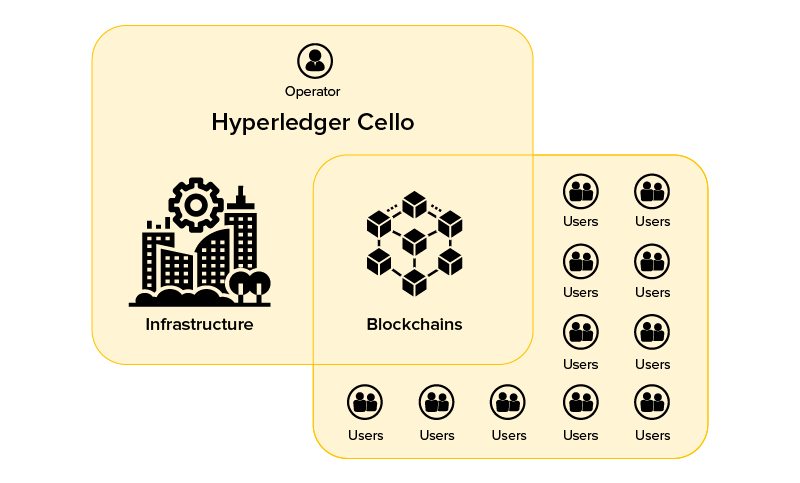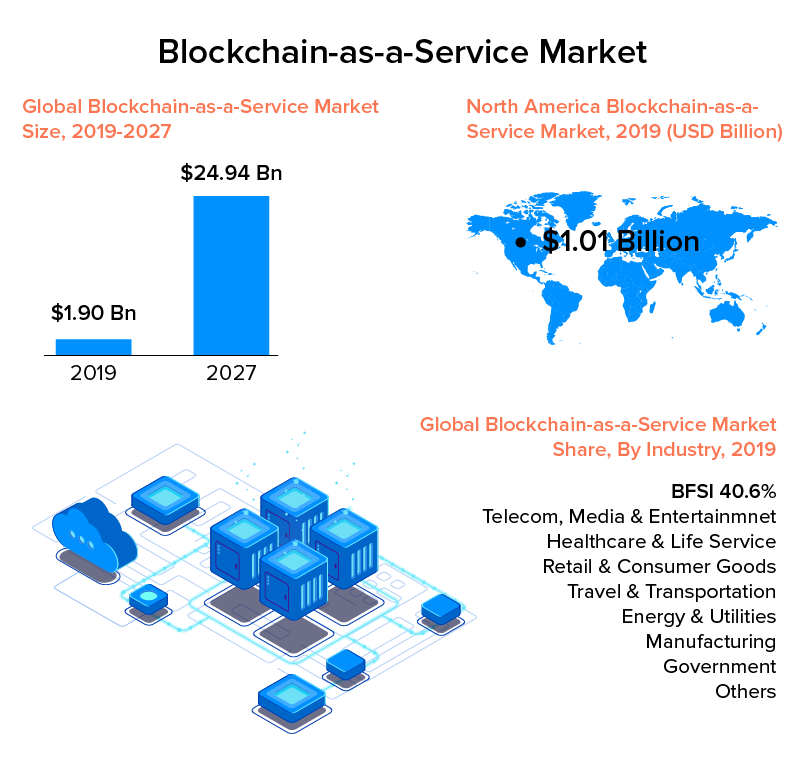What is Blockchain-as-a-Service & its Business Benefits?
Contents |
[edit] Introduction
The real-world applications of Blockchain are expanding. It has extensive real world applications and benefits but digital businesses are still struggling to leverage the true potential of Blockchain solutions. Now there are two possible questions that stand in front of business owners.
- Is Blockchain-as-a-service a workable solution?
- Is Blockchain-as-a-service for business the answer of how to make Blockchain technology accessible to an audience?
[edit] What is Blockchain-as-a-service?
For offering the benefits of blockchain development services to a wider audience, the technology has started being offered in the cloud as a service business model. On the operational front, it is more or less similar to the SaaS, PaaS, and IaaS models which enables using cloud-based apps and storage.
It allows businesses of all types and sizes to access Blockchain based technologies without investing in in-house development. The BaaS model enables companies to access the Blockchain provider’s service wherein they can develop Blockchain applications at minimal cost.
The only limitation of the BaaS solution for business is that it asks for a certain level of centralisation since the transactions have to be funnelled through the host’s Blockchain services. And because the answer to how Blockchain is used in business lies in decentralisation, companies tend to be wary of its adoption.
Key takeaways:
- Blockchain-as-a-Service is third party cloud infrastructure and management that businesses use for developing and managing Blockchain applications.
- It operates as a web host which runs an app’s backend.
- BaaS acts as a catalyst which leads to widespread adoption of Blockchain technology.
[edit] How does Blockchain-as-a-service work?
The Blockchain-as-a-service business model describes the process through which third parties instal, host, and maintain a Blockchain network on the behalf of organisations. The service provider offers the setting up of Blockchain infrastructure and technology in return for fees.
In many ways, the role of Blockchain-as-a-service for business is similar to that of a web hosting provider. It enables customers to make use of the cloud based solutions for developing and hosting Blockchain applications and smart contracts in the ecosystem managed by the provider.
Here is a visual showcasing the working of Hyperledger Cello Blockchain-as-a-Service, which is a BaaS-like Blockchain module utility system and toolkit under the Hyperledger project.
The BaaS integration in traditional business provides support around allocation of resources, bandwidth management, data security features, and hosting requirements. The biggest impact of BaaS on business is that the enterprises can concentrate on their main business without thinking of the complexities around Blockchain operation.
[edit] How Blockchain-as-a-service is shaping businesses
According to MarketsandMarkets, the global BaaS size is expected to grow to USD 11,519 million by 2026. Blockchain-as-a-service is exclusively shaping startups and SMEs that are highly dependent on large data silos. BaaS comes with the package of smart data protection and competitive advantage. This acts as a benefit over cost.
Businesses and consumers are adapting to Blockchain technology. However, the operational overhead cost related to development, configuration, operation, and maintenance of infrastructure along with the technical issues act as a barrier.
Renting a Blockchain infrastructure in BaaS allows businesses to acquire the skills needed for operating the Blockchain infrastructure. Additionally, the investment needed for entering the technology segment is also lowered, since the service agreement can be easily scaled up or even terminated within short notice.
It offers a way for businesses to stay at the edge of technology without any unnecessary risks.
[edit] BaaS for startups
The opportunities of BaaS for businesses, especially small businesses, is ideal for organisations which outsource the technological aspects, and are not very involved with the Blockchain’s working mechanism. It enables these firms to get the understanding of the technology without having to develop their proprietary Blockchain.
The integration of BaaS solutions is being used by a number of industries for things like identity management, supply chain management, and payments.
[edit] Related articles on Designing Buildings
- Blockchain could transform the construction industry.
- Blockchain definitions.
- Blockchain – feasibility and opportunity assessment.
- Blockchains will change construction.
- Blockchain technology in the construction industry
- Eliminating waste at scale – opportunities for blockchain.
- The Institution of Civil Engineers.
- ICE articles on Designing Buildings Wiki.
- Digital twin.
- Building information modelling.
- Non-fungible token NFT.
- Traceability.
BIM Directory
[edit] Building Information Modelling (BIM)
[edit] Information Requirements
Employer's Information Requirements (EIR)
Organisational Information Requirements (OIR)
Asset Information Requirements (AIR)
[edit] Information Models
Project Information Model (PIM)
[edit] Collaborative Practices
Industry Foundation Classes (IFC)







